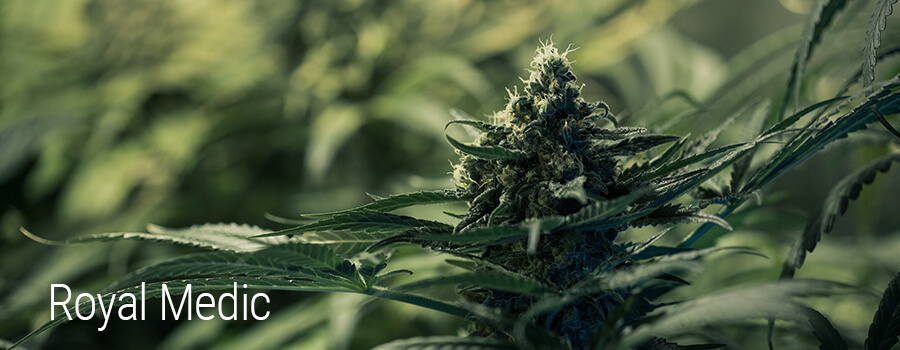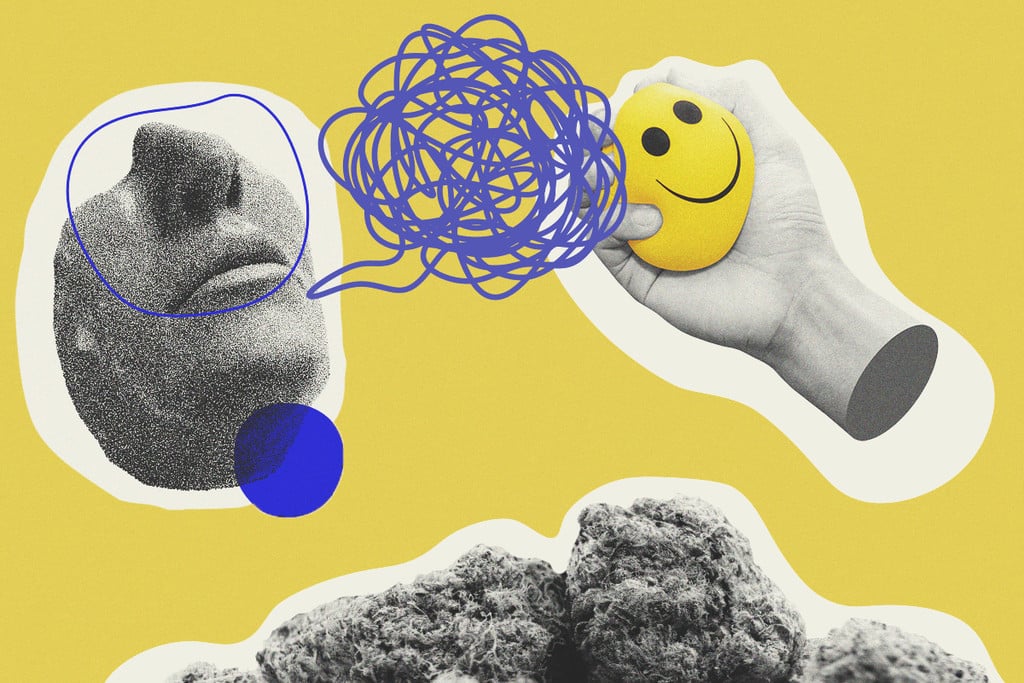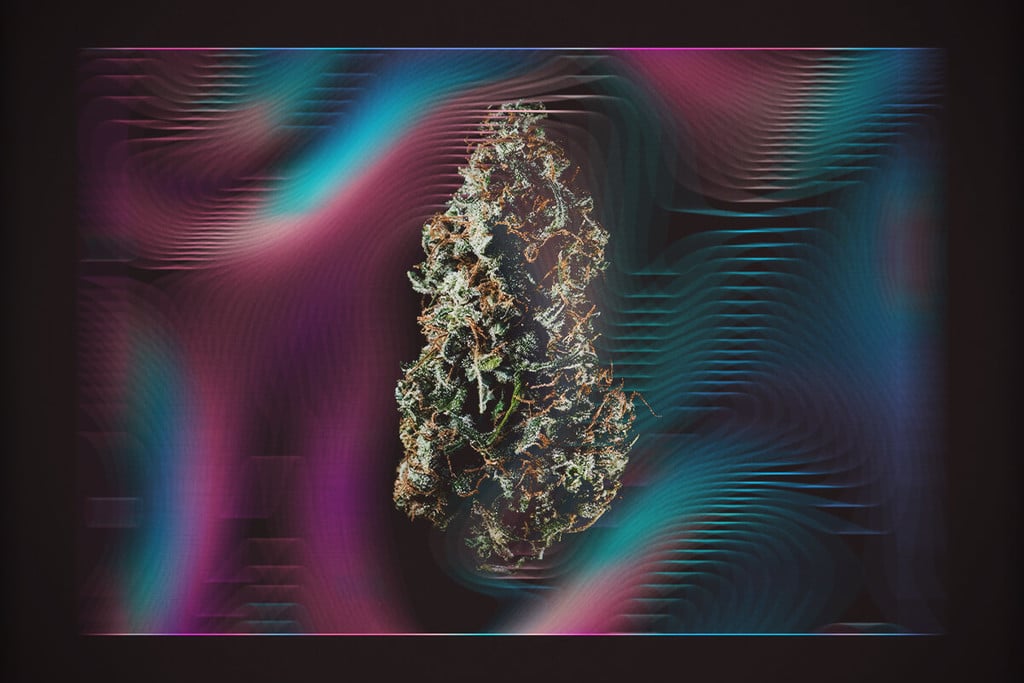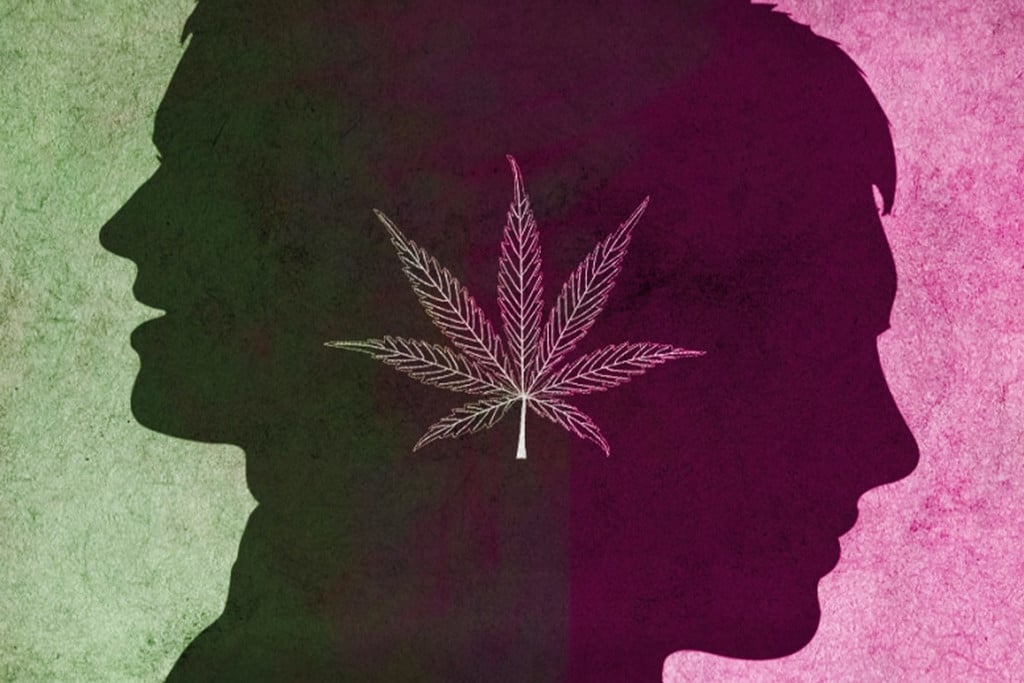.

Is There A Link Between Smoking Cannabis And Paranoia?
Many of us will have felt paranoid at some point. If cannabis is responsible for inducing a paranoid mental state it would be bad news for our beloved herb. Research points to a more complex relationship between marijuana and paranoia.
Paranoia, in mild or extreme forms, is experienced by half the population every month. However, many users have reported feeling heightened levels of paranoia when smoking weed. Often this feeling goes when the high dissipates, but nothing ruins a great cannabis experience quicker than wondering if that siren in the distance is coming for you.
Regardless of your own experience, the link between cannabis and paranoia is a complicated one. If you are someone who experiences these bouts of paranoia when smoking, the good news is there are ways to combat that paranoid feeling and techniques to help prevent the feeling occurring in the future.
WHAT IS PARANOIA?
Paranoia is characterised by delusions of persecution, unwarranted jealousy or feeling under threat. Where rational thought process might lead a person to see situations as coincidence, a person experiencing paranoia will see them as constructed and purposeful. They may even feel like others intend to inflict harm on them during their paranoid state.
In extreme circumstances these irrational fears or fixations can become a person's reality, making it incredibly hard to convince them otherwise. Add cannabis to the equation, and it is easy to see how the two have come to be linked by popular opinion. Given the feeling of being high is used by many to detach from everyday reality, combining being high and paranoia in certain circumstances becomes a self-fulfilling cycle.
Our paranoid thoughts are detached from reality while cannabis keeps us in a state removed from reality. Assuming all marijuana has this effect would be very shortsighted. Often paranoid thoughts exist before smoking marijuana, although users may not be fully aware of such ideas until high.

SYMPTOMS OF PARANOIA
Symptoms of paranoia include:
- A feeling of suspicion or mistrust
- Feeling targeted or singled out
- Feeling like people or a person wants to cause harm, either physically or emotionally
You may feel like the whole world is talking about you when paranoid, or a partner is cheating when working late. Neither have any grounding in reality, but in our paranoid state, we often create links between unrelated events. Reading negative connotations into every situation is often upsetting and by no means healthy for our mind or body. If users experience these feeling when smoking weed, it can put them off doing so permanently.
If you are unsure whether what you experience is paranoia, the best approach is to explain the situation to someone else. If that person doesn't make the same links, connections or thoughts about a scenario, then it could point to you experiencing paranoid thoughts.
THE LINK BETWEEN MARIJUANA AND PARANOIA
Knowing what paranoia is and what we feel when paranoid can help when trying to combat paranoia. If, however, smoking weed does make us paranoid, it could be a lose-lose situation for cannabis users.
Despite the apparent link between cannabis and paranoia, users have been smoking marijuana for hundreds of years to help alleviate negative mental states. Anxiety, often linked to paranoia, is a feeling many users combat with cannabis. Assuming that all marijuana encourages thoughts of paranoia is a direct contrast to smokers using cannabis to support their mental health. Instead, it appears THC may be the culprit by enhancing feelings of paranoia in specific cases.

WHAT DOES RESEARCH SUGGEST?
A joint study[1] between the University of Oxford, the Institute of Psychiatry at King's College London and the University of Manchester sought to understand if THC did contribute to feelings of paranoia. Focusing specifically on what constituted as “feelings of paranoia”, 121 volunteers were given either a 1.5mg dose of THC or a saline placebo. The 1.5mg dose of THC would mimic the act of smoking a strong joint, but isolated from the other cannabinoids that shape the effect.
Extensive assessment of each candidate was undertaken to test for paranoia. None of the volunteers knew whether they had been administered with THC or the placebo, but the results proved reasonably conclusive. Using virtual reality scenarios, real-life social situations, questionnaires and interview assessments, they found half of those given THC experienced paranoia, compared to 30% of candidates in the placebo group.
Each of the candidates had smoked cannabis at least once in their life but did not report any previous mental health issues. The study also found that paranoid thoughts subsided as the feeling of being high wore off. However, rather than THC causing paranoia, researchers concluded we are more likely to experience periods of paranoia when we are worried, anxious or have a reason to distrust someone.
COMBATING PARANOIA WHEN SMOKING WEED
THC can bring these feelings to the forefront of our mind, primarily down to the way THC interacts with cannabinoid receptors in the emotional areas of our brain. If, as a cannabis user you do experience paranoid thoughts and feelings when smoking, asking ourselves what may have led to those thoughts can help combat the symptoms occurring.
Regardless, paranoia is likely to affect all of us at some point. Whether that is the result of smoking cannabis or not, the feeling is not pleasant nor healthy for us to experience repeatedly. Several practical steps can be taken to help ease or alleviate that paranoid feeling.

SWITCHING STRAINS
If research suggests THC can bring about heightened feelings of paranoia, then a simple switch of strain could be the answer. Picking a strain with a lower THC content, or a strain devoid of THC altogether is an excellent place to start. Instead, strains high in CBD would give users a more balanced esxperince with less risk of inciting or emphasising paranoid thoughts. CBD is linked to feelings of calm and overall well being. It is also known to regulate and counter the more psychoactive effects of THC.
If getting high is a must, then the following tactics can help limit paranoid episodes.
ENVIRONMENT
Smoking cannabis is a social activity, as such house parties are often rife with weed. As well as providing some of the best memories, house parties bring with them a whole host of social anxieties. Add cannabis to the mix, and it is easy to see how paranoia sets in. If you feel paranoid feelings coming on, the best thing to do is change your environment. Moving away from the situation and refreshing your mind can help control the paranoia before it becomes too severe.
The same process can be adopted regardless of whether you are at a house party or not; if the situation is making you uncomfortable, moving away and changing environment is the perfect remedy.

RELAXING MUSIC
Picking a playlist that reminds you of a time or place you experienced happy thoughts is the best place to start. Think of the music as a light in the dark, combating those negative thoughts.
FRESH AIR
Working hand in hand with the change of environment mentioned above. Taking a walk, in a park or an area naturally peaceful can provide your mind with a much-needed reset. Take deep breaths as you walk, in through your mouth and out through your nose.

STAYING HYDRATED
A cup of tea is often heralded as the saviour in many stressful situations. Try adding honey for a sugar hit that helps promote feelings of calm and warms the body at the same time. Being dehydrated also limits our ability to think clearly. Always ensure you stay hydrated, whether that is through tea or any other drink you find enjoyable.
HAVING A SHOWER OR BATH
A cold shower or hot bath, either will do. Just pick the one you prefer the most. Both will provide a moment for you to collect your thoughts and make your body feel better in the process.
- How Cannabis Causes Paranoia: Using the Intravenous Administration of ∆ 9 -Tetrahydrocannabinol (THC) to Identify Key Cognitive Mechanisms Leading to Paranoia | Schizophrenia Bulletin | Oxford Academic https://academic.oup.com







































